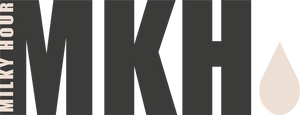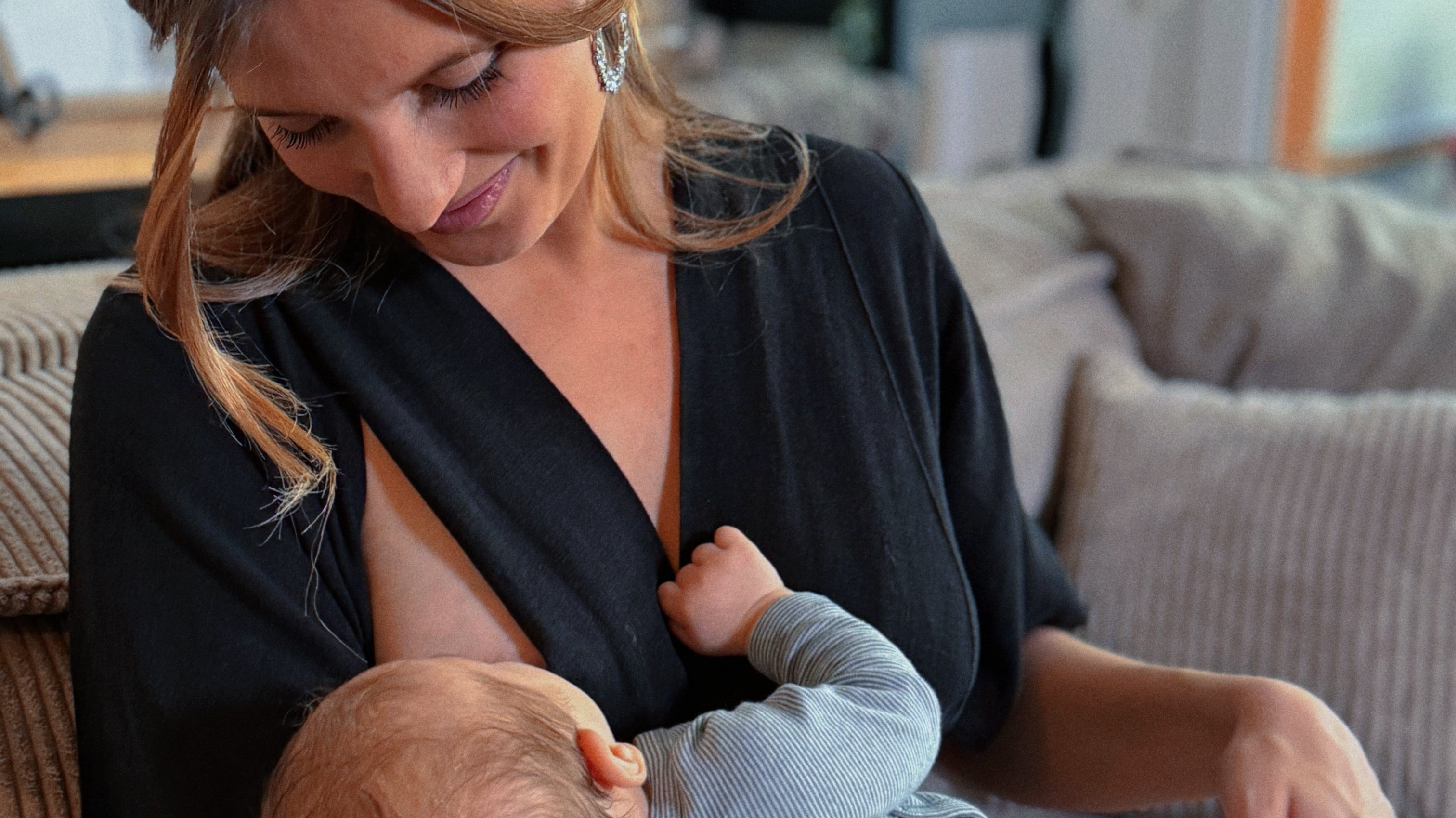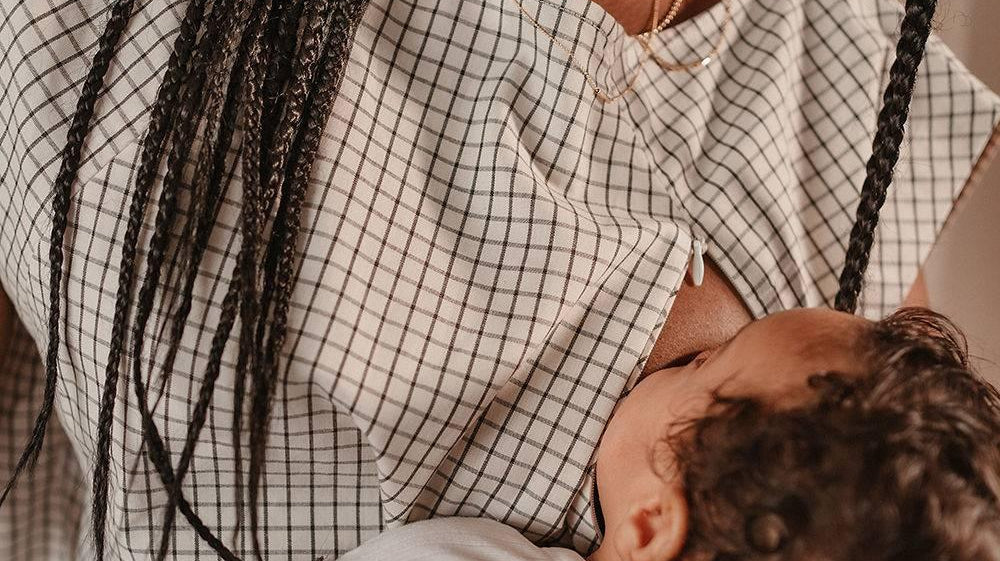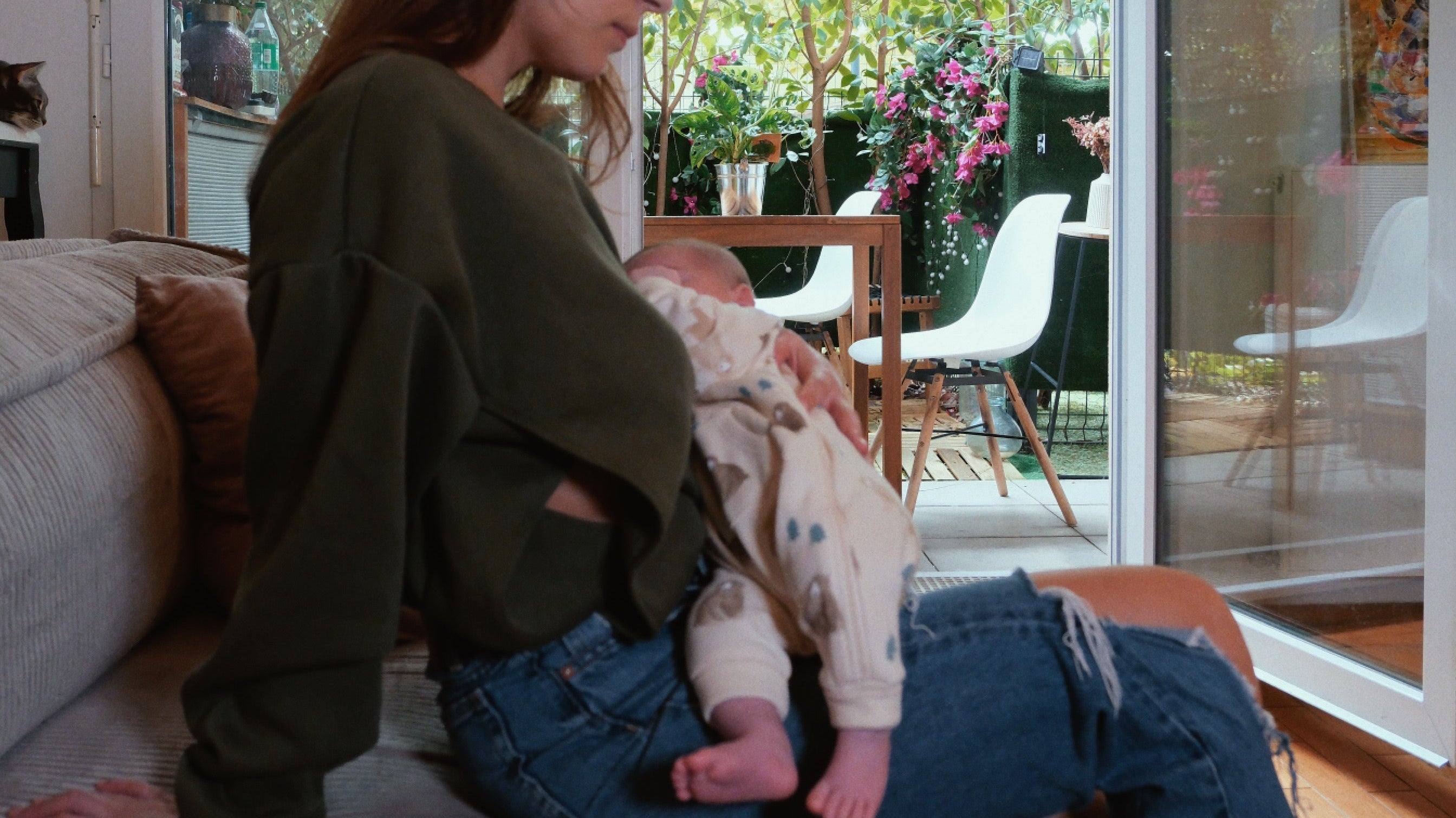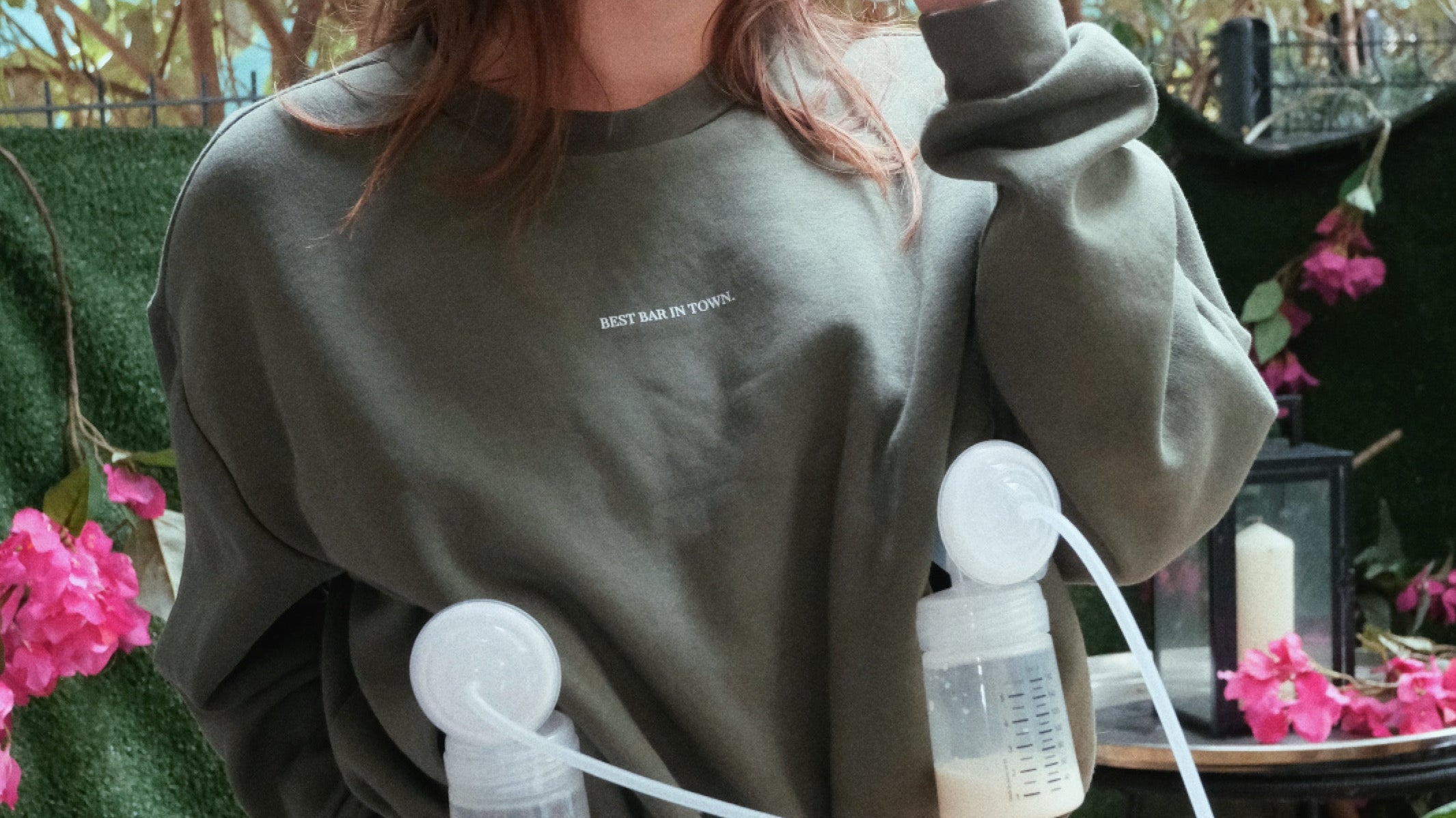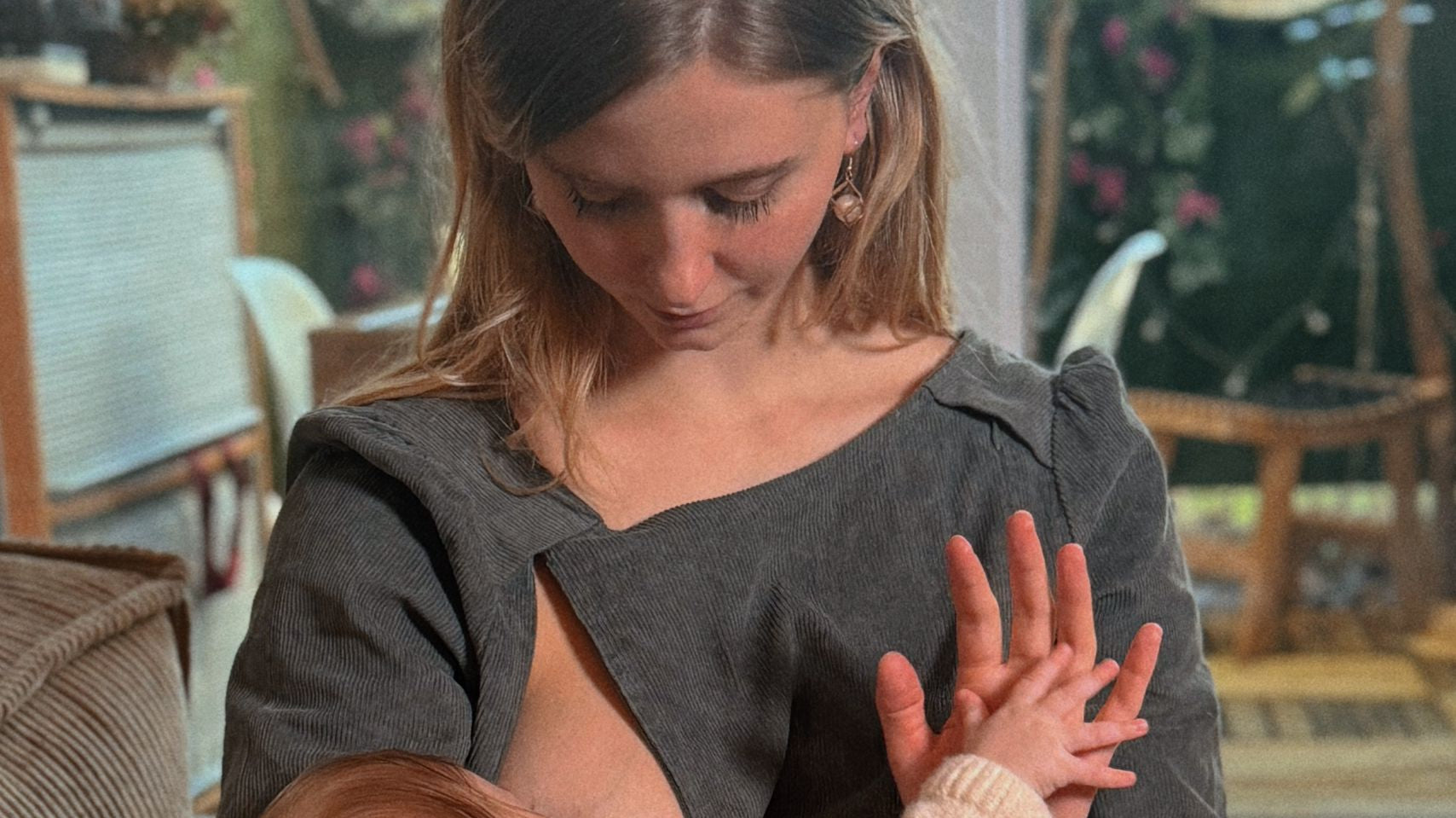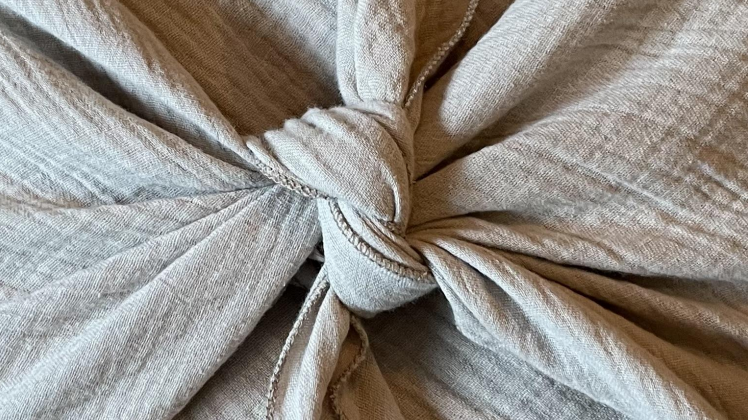Blog
Taking care of yourself while breastfeeding: nutrition and hydration
Taking care of yourself while breastfeeding is essential!
Breastfeeding requires energy, a good diet, and regular hydration. It's recommended to eat balanced meals rich in protein, healthy fats, and calcium, and to drink at least 2 liters of water per day. Certain foods like spices, caffeine, and alcohol should be limited. To better navigate this period, plan simple meals, accept help from those around you, and allow yourself moments of rest and gentle activities.
Milky Hour supports mothers with clothing designed for their everyday comfort. 💛
Baby Clash: Tips for Managing It
Baby clash refers to the tensions and conflicts that can arise in a relationship after the birth of a baby. Fatigue, mental overload, unequal division of labor, and a lack of time for oneself or for the couple can weaken the relationship.
But this period, although difficult, is not inevitable . The article offers several tips for getting through this phase:
-
Communicate openly to express your feelings without reproach.
-
Distribute tasks fairly to avoid frustration.
-
Take time as a couple to nurture complicity.
-
Preserve time for yourself , in order to stay balanced and available.
-
Accept imperfections : Parenting is never perfect.
-
Consult a professional if tensions become too heavy.
Conclusion: The baby clash is a common but temporary ordeal , to be overcome together with dialogue, mutual support and kindness. The couple remains the pillar on which the whole family relies.
Mother-baby bond and breastfeeding: myth or reality?
The article kindly explores the idea that breastfeeding is the key to the mother-baby bond . While it is true that breastfeeding stimulates oxytocin —the bonding hormone—and creates a favorable context for the mother-child connection, it is by no means essential for creating this bond .
The emotional bond is built through gaze, touch, voice, and daily presence , regardless of the feeding method (breast, bottle, breast pump, etc.). The text emphasizes that each parent-baby duo is unique , and that not feeling a "magical" bond while breastfeeding is perfectly normal .
The central message: It's not the gesture that counts, but the intention, the gentleness, and the consistency . There's no one way to love or do good—every parent bonds in their own way.
Breastfeeding Pressure: Guilt or Freedom?
Breastfeeding: Guilt or Freedom?
The article explores a personal and often taboo subject: the pressure surrounding breastfeeding. While this is a natural process, it remains complex, painful, and frustrating for many mothers. Beneath the warm encouragement sometimes lies guilt-inducing injunctions.
A personal choice that has become a source of pressure
New mothers face constant judgment: whether they breastfeed or not, for a long time or a short time, in public or in private. Everything seems to have to be justified. This silent pressure fuels what's called "mom guilt," a guilt that creeps in from the very first choices.
Empowering Mothers
Breastfeeding should never be a moral duty. It is neither a test of love nor a criterion of maternal competence. What matters is that the mother is well, that she feels supported and respected in her choices.
Milky Hour: Support without judgment
Milky Hour advocates gentle, free, and guilt-free support. Every story is legitimate, whether it involves breastfeeding, bottle feeding, pumping, or stopping. The key is to empower women to do what's right for them and their babies.
Le Made in France dans le textile : Une alternative durable à la fast fashion
La mode Made in France est souvent perçue comme chère, mais elle représente un choix responsable et durable face à la fast fashion. Elle se distingue par la qualité et la durabilité des vêtements, fabriqués avec soin et des matières nobles, ce qui les rend plus rentables sur le long terme. Elle limite aussi l’impact écologique en réduisant la surproduction et les transports grâce aux circuits courts. En plus, elle garantit des conditions de travail respectueuses et soutient l’artisanat local. Le prix plus élevé reflète ces engagements et non une recherche de profit. Adopter le Made in France, c’est choisir une mode éthique, écologique et durable.
Why is France lagging behind in terms of breastfeeding?
Summary :
In France, breastfeeding rates are low, with only 10% of mothers still breastfeeding at 6 months, far from the WHO recommendations. This delay is explained by maternity leave that is too short, persistent prejudices, and a lack of support. Abroad, countries such as Sweden, Germany, and regions of Asia promote breastfeeding through favorable policies and appropriate support. To make progress, France could extend maternity leave, strengthen support, raise public awareness, and set up spaces dedicated to breastfeeding.
Breastfeeding in public spaces: what does the law say in France?
In France, it is legal for mothers to breastfeed in public places, in accordance with Article L. 1111-1 of the Public Health Code. However, the absence of explicit legislation leads to varied interpretations and exposes mothers to comments or discrimination. Prejudices, such as the sexualization of breasts, lack of education or social discomfort, still make breastfeeding in public taboo.
Denying a mother the right to breastfeed in public is considered discrimination under Article 225-1 of the Penal Code, and victims can file a complaint or contact the Ombudsman. Comparatively, countries such as the United Kingdom and the Nordic countries are more normalizing this practice.
To improve the situation, awareness campaigns, training of professionals, creation of adapted spaces, and promotion of breastfeeding in the media are proposed. The objective is to guarantee mothers a caring environment to exercise their right to breastfeed without fear or judgment.
Reconciling returning to work and breastfeeding: our advice for doing so with peace of mind
Returning to work while breastfeeding is possible with good organization. Prepare yourself in advance: find out about your rights, familiarize yourself with the breast pump, and build up a milk reserve. Talk to your employer to adjust your schedule and provide a dedicated space. Maintain morning and evening feedings, plan breaks to express your milk, and store it properly. Choose a suitable childcare method and take care of your well-being. Be kind to yourself and adapt your pace if necessary. The main thing is to find a balance that suits you.
Nursing Pillows: The Essential Accessory for Mom and Baby
The nursing pillow is an essential tool to improve comfort and support during breastfeeding. It offers significant benefits for both mother and baby, such as ergonomic support, correct posture, and optimal positioning to facilitate latching. This versatile pillow is also useful during pregnancy, to relieve lower back pain or support the belly during sleep.
A good nursing pillow should have a suitable shape (U or C), be made with hypoallergenic materials, offer ideal firmness and be easy to maintain thanks to washable covers.
Beyond breastfeeding, it is used to support the back during pregnancy, keep the baby in a semi-sitting position, or as a travel accessory. It is therefore essential to accompany mothers throughout maternity, making each moment more comfortable and enjoyable.
Breastfeeding: the benefits for you and your baby
Breastfeeding provides nutrition that is perfectly adapted to the baby's needs, enriches its intestinal microbiota, strengthens its immunity and adapts in real time to its age and health. For the mother, it promotes postpartum recovery, helps with weight loss, reduces the risk of certain cancers and improves mental well-being. It is a natural and precious gesture that benefits both health and the unique bond between mother and child.
